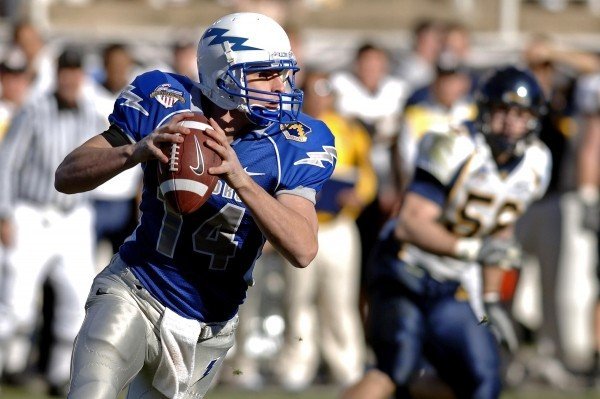
“Freak.” “Monster.” “Gorilla.” During this year’s Super Bowl Sunday, Shakira and J-Lo were not the only hyperboles on show. Both the official sports commentary and its online counterparts were littered with back-handed terms of admiration tinged with disgust. Why is it, I wondered, that these off-putting words are preferred over unambiguous compliments like ‘exceptional athlete’ and ‘outstanding contender’?
In writing this, of course, I’ve answered my own question. Undiluted positivity is boring. Even the Webster’s New World Thesaurus entry for the word “prodigy” carries these new terms, reappropriated by the muscular freakshow talents of this world: “prodigy n. marvel, portent, miracle, monster, enormity, spectacle, freak, curiosity, phenom.” (emphasis mine)
It has always been thus. When I was growing up, something we called ‘sick’ or ‘wicked’ was really quite special. But in borrowing those words to spice up our adulation, we created ambiguity. When we called something ‘wicked’ tomorrow, was that thing an affront to God, or was it really quite nifty? It turns out those small acts of theft from the world of the negative—lending excitement to the positive—tend to ossify, to the point where negative charges in the word are entirely lost.
“It is not unusual to take words with strong negative connotations and flip their valences,” says philosopher of language Peter Ludlow, who studies the way word meanings shift. In fact, they shift their meanings much more often than intuition suggests.
Emotion words in particular have a habit of flipping from negative to positive, he says. Take the word “excited”. In the year 1800, it was used twice as frequently as we use it now, but it meant something different. Here’s an example: “The doctor of the prison was never present when he was excited. He visited him under the best circumstances.” ‘Excited’ meant then what we mean now by the word ‘agitated’, and it was used a lot in scientific texts when anything was spurred into action or set into a certain state.
Similarly, to be “surprised” at that time was to be attacked unexpectedly, and if you were “amazed” it meant you were utterly confused.
We need a constant supply of new positive words, because our old ones get worn out and watered down over time. You can see this happening in real time with words like “enjoy”. In corporate speak, if someone is “enjoying a hotdog”, they are basically just…eating a hotdog.
So let’s get in on the act, and contribute to a non-anemic positivity. Destroy that hotdog. Murder it. Let it devastate your insides. You’ll be keeping the English language alive.
Image: VisualHunt.com